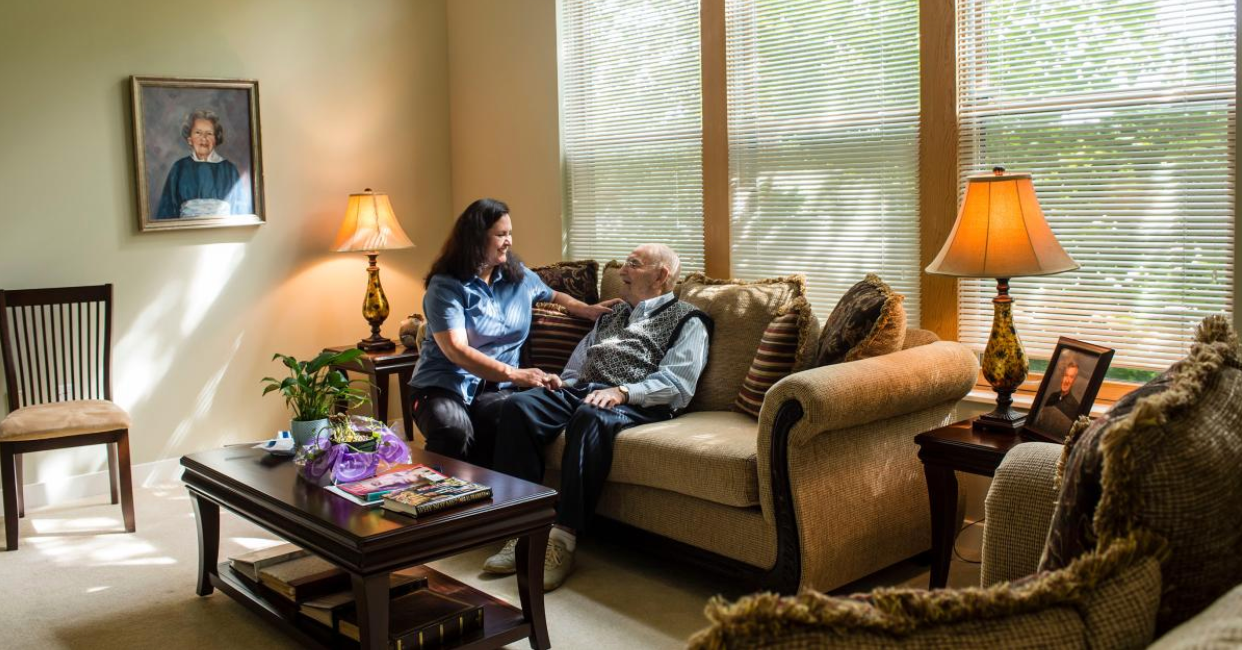The Montreal Cognitive Assessment (MoCA): A Tool for Cognitive Evaluation
The Montreal Cognitive Assessment (MoCA):
A Tool for Cognitive Evaluation
At 7 Day Home Care, we emphasize the importance of proactive screening and diagnosis of cognitive conditions to enhance overall well-being, particularly in the context of Alzheimer's and dementia care. Early detection of cognitive impairment allows for timely interventions that can significantly improve the quality of life for individuals and their families. One of the most effective tools in this proactive approach is the Montreal Cognitive Assessment (MoCA), a widely recognized screening instrument designed to detect mild cognitive impairment.
By administering the MoCA, your healthcare professionals can identify early signs of cognitive decline and tailor our care plans to address specific needs, thereby potentially slowing the progression of symptoms and maintaining a higher level of independence for you or your loved one. As a leading home care agency specializing in Alzheimer's and dementia in-home care, 7 Day Home Care provides personalized, compassionate care that promotes mental, emotional, and physical well-being. 7 Day Home Care is licensed by the New York State Department of Health to provide home care services, in
Manhattan, Queens, Brooklyn, Nassau County, and Suffolk County, New York.

The Montreal Cognitive Assessment (MoCA) has Become
an Integral Part of Cognitive Screening and Diagnosis
As a leading provider of in-home care services in Manhattan, Brooklyn, Queens, Nassau County, and Suffolk County, 7 Day Home Care recognizes the importance of comprehensive cognitive assessments in promoting the well-being of our clients. The Montreal Cognitive Assessment (MoCA) is a widely-used tool for evaluating cognitive function in individuals and has become an integral part of cognitive screening and diagnosis.
History of the Montreal Cognitive Assessment (MoCA)
The Montreal Cognitive Assessment was developed in 1996 by Dr. Ziad Nasreddine and his colleagues at McGill University in Montreal, Canada. The primary aim of creating the MoCA was to improve the detection of mild cognitive impairment (MCI) and early stages of dementia, particularly Alzheimer's disease. The assessment tool was designed to be brief, easy to administer, and sensitive to detecting cognitive deficits that may not be captured by traditional cognitive tests.
The MoCA was initially used as a research tool but gained widespread popularity due to its effectiveness in identifying mild cognitive impairments that often go unnoticed in routine clinical evaluations. Over the years, the MoCA has been translated into multiple languages and adopted by healthcare professionals globally as a reliable cognitive assessment tool.
Overview of the Montreal Cognitive Assessment (MoCA)
- Early Detection of Cognitive Impairment:
The MoCA is sensitive to detecting mild cognitive impairments and early cognitive decline, allowing for timely intervention and treatment. Its effectiveness in identifying subtle cognitive changes makes it a valuable tool for early diagnosis and disease management. A study published in the Journal of the American Medical Association (JAMA) Neurology found that the MoCA demonstrated superior sensitivity in detecting mild cognitive impairment compared to other cognitive tests.
2. Broad Range of Cognitive Domains:
The MoCA assesses various cognitive domains, including attention, memory, language, visuospatial abilities, and executive functions. This evaluation provides a holistic picture of an individual's cognitive health, aiding in accurate diagnosis and personalized care planning. The Alzheimer's Association recognizes the MoCA as a valuable tool for assessing multiple cognitive domains, enabling healthcare professionals to target specific areas for intervention.
3. Quick and Simple Administration:
The MoCA can be administered in approximately 15 minutes, making it a time-efficient tool for busy healthcare practitioners. Its brevity is particularly advantageous for use in routine clinical practice and screenings. A study published in the Journal of Geriatric Psychiatry and Neurology highlighted the time efficiency of the MoCA, making it a practical option for cognitive evaluations in various healthcare settings.
Potential Issues related to the Montreal Cognitive Assessment (MoCA)
- Education and Language Bias:
The MoCA includes tasks that may have cultural, educational, or language biases, leading to potential inaccuracies in certain populations. Scores may be affected by factors such as educational background, language proficiency, and cultural norms. A research article in the journal Dementia and Geriatric Cognitive Disorders highlighted the need for cultural adaptations of the MoCA to improve its validity in diverse populations.
2. Limited Specificity for Certain Dementias:
While the MoCA is effective in detecting general cognitive impairment, it may lack the specificity to distinguish between different types of dementia. Additional assessments and diagnostic tools may be required to differentiate between Alzheimer's disease, vascular dementia, and other cognitive disorders. The American Academy of Neurology recommends the use of additional tests and clinical evaluations to differentiate between different types of dementia accurately.
Scenarios When Taking the
Montreal Cognitive Assessment (MoCA) is Inappropriate
While the MoCA is a valuable cognitive assessment tool, there are scenarios when its administration may not be appropriate or may require caution:
- Severe Cognitive Impairment: The MoCA may not be suitable for individuals with severe cognitive impairments or advanced stages of dementia, as they may have difficulty completing the assessment tasks.
- Language Barriers: Language barriers may affect the validity of MoCA results, especially in individuals with limited proficiency in the language in which the assessment is administered.
- Severe Visual or Hearing Impairment: Individuals with severe visual or hearing impairments may face challenges in completing certain tasks of the MoCA, affecting the accuracy of their cognitive evaluation.
The Montreal Cognitive Assessment (MoCA) has become a valuable tool in the assessment of cognitive function, particularly in the early detection of mild cognitive impairments and dementia. Its comprehensive evaluation of various cognitive domains makes it a valuable resource for healthcare professionals in developing personalized care plans for their patients. However, healthcare providers must also be mindful of potential biases and limitations of the MoCA and consider additional evaluations for more specific diagnoses.
The Montreal Cognitive Assessment (MoCA) is typically designed to be administered by a healthcare professional, preferably a doctor or a trained clinician. These professionals have the necessary expertise to properly conduct and interpret the results of the assessment. If you or someone you know is concerned about cognitive function or memory issues, it's essential to seek guidance from a qualified healthcare professional who can administer the appropriate assessment and provide appropriate recommendations based on the results.
At 7 Day Home Care, we understand the importance of accurate cognitive assessments in providing the best possible care for our clients. As a trusted provider of in-home dementia care services in Manhattan, Brooklyn, Queens, Nassau County, and Suffolk County, we recognize the value and necessity for personalized care plans to support the unique needs and well-being of our clients and their families.
To learn more about our in-home Alzheimer's and Dementia care services visit us here or call 516-408-0034. We are dedicated to providing compassionate and high-quality care to improve the lives of our clients and promote their overall well-being.
Brian Callahan
7 Day Home Care










